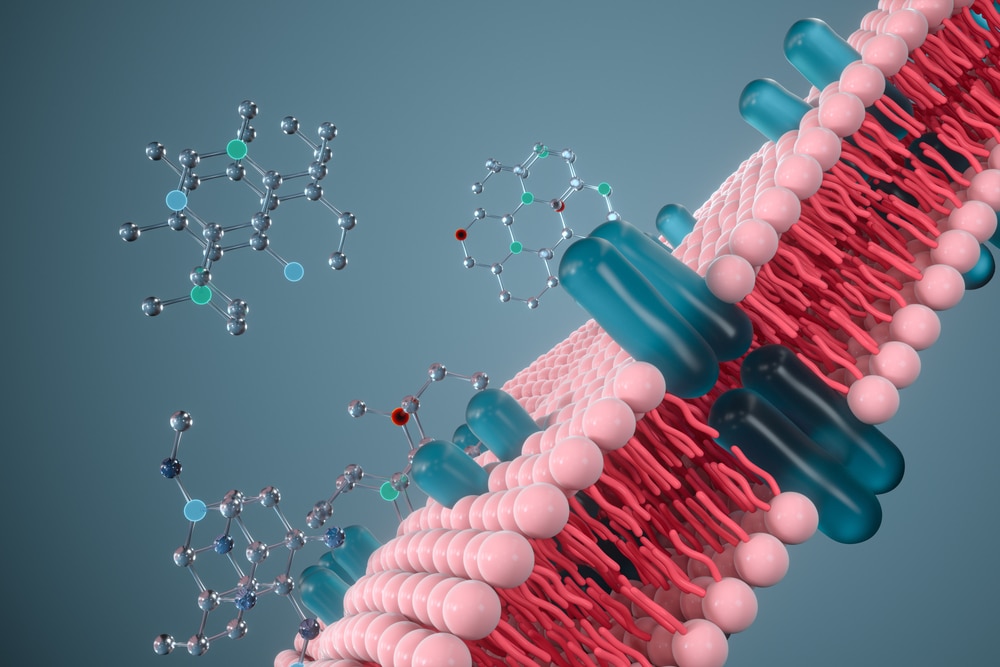On this week’s podcast we have a conversation with Jordi Mata-Fink, co-founder and chief executive officer of Gate Bioscience. Gate Bioscience is a U.S.-based biotechnology company creating a new class of medicines called Molecular Gates.
Founded in 2021, Gate is emerging from stealth with a novel scientific platform and $60 million in Series A funding led by Versant Ventures and a16z Bio + Health, with participation from ARCH Venture Partners and GV.
What are disease-causing extracellular proteins?
Mata-Fink explained that extracellular proteins are proteins that act outside the cell.
“This means either they are secreted from the cell or sitting on the cell membrane, but facing outwards. Out of the 20,000 proteins that are encoded in the human genome, about 4,000 of those are extracellular proteins, and about 1,000 of those are linked to disease. So the types of diseases that are caused by extracellular proteins include diseases where, for example, the extracellular protein is produced at too high a level, or it’s produced at the wrong time or at the wrong place in the body, or in some instances where the protein is produced and then it misfolds and it aggregates, and that can cause problems.”
What are molecular gates?
Molecular gates are small molecules that eliminate the disease-causing extracellular proteins. Extracellular proteins are drivers of many human diseases, ranging from inflammatory conditions to neurodegenerative disease to several cancers. Gate’s approach targets a ubiquitous mechanism in human biology: the way in which these proteins are secreted and emerge from cells.
The vast majority of these proteins make that journey through a single channel in the endoplasmic reticulum called the secretory translocon.
This channel is the only gateway for both beneficial and disease-causing proteins to exit the cell and act in the body. Molecular gates drug this channel to stop disease-causing proteins at their source: inside the cell.
“More than 1,000 extracellular proteins are implicated in a wide range of diseases, yet all of these conditions have one mechanism in common: the secretion of a disease-causing protein through the secretory translocon,” said Mata-Fink.
How to eliminate extracellular proteins?
“The way that molecular gates work is to try and eliminate these extracellular proteins at their source inside the cell while they’re being made. And when we put our ‘Gate goggles’ on and look at the process by which these proteins are being made and secreted by the cell, they’re all made and secreted through a common pathway,” Mata-Fink said.
“So, even though these thousand different types of disease-causing extracellular proteins are all different in their own ways, at their source, they’re actually very similar. And so there’s a common mechanism that we hope to go after and drug with our molecular gate drug modality.
“Gate’s chemistry, platform, and expertise are laser-focused on this molecular process. For diseases caused by extracellular proteins, our aim is to restore the harmful proteins to normal levels or even, in the case of some conditions, to eliminate the disease-causing proteins entirely. We are inventing a new class of medicines that can bring hope to patients with devastating diseases that are not treatable, or not well treated, today.”
Gate has the capability to selectively block specific proteins from passing through the secretory translocon. Molecular-gate medicines bind to the secretory translocon and set up a “gate” that recognizes and stops a specific, disease-causing protein from exiting. Other, non-targeted proteins can move through the secretory translocon normally. With nowhere to go, the blocked protein is redirected to be degraded instead of secreted.
Molecular Gate Discovery Platform
Gate’s approach is fueled by the company’s proprietary Molecular Gate Discovery Platform, which combines a library of Molecular Gates. This is a suite of bespoke, secretion-focused assays and technologies; and insights into the biology and structural biology of the secretory pathway. The platform enables high-throughput screening of small molecule libraries alongside quantitative profiling of the entire secreted protein universe to develop selective therapies.
“We are inventing a new class of medicines that can bring hope to patients with devastating diseases.”
How to differentiate between ‘good’ and ‘bad’ proteins
Every protein has its own amino acid sequence, Mata-Fink noted.
“Our molecule, our molecular gate that’s sitting in the channel, can discriminate between those amino acid sequences and therefore block, selectively, the ones that we would like to prevent the secretion while allow others through,” Mata-Fink said.
“Through the magic of medicinal chemistry, you could make molecules that, instead of acting as a plug, act as a gate, meaning that instead of blocking all things from going through, you could introduce chemical diversity in the molecules binding to the secretory translocon in such a way that you would actually allow many proteins to pass through and only block some of them.
“And then once you saw that there was a difference between the things that were blocked and things that weren’t, you could start to design for that selectivity. You could start to make changes to the molecules and test them and iteratively drive more potent molecules and more selective molecules. And it was really that insight that you could move from plugs to gates that got us started with our company.”
Mata-Fink said the company will focus initially on inflammation and around protein aggregation diseases, and the intersection of those with neuroscience, where molecular gates can get into the brain and affect extracellular proteins in the brain.
Next steps
“What we’re going to do now with this Series A money is really deploy our platform technologies towards pushing programs forward. Our hope is that the lead programs might be ready for clinical testing in three to five years,” Mata-Fink said.
To learn more about this topic:
Here are some links to other articles on the subject of new small molecules and extracellular proteins:
- Next-generation small molecules hold promise for immunotherapy (Labiotech.eu)
- Avilar Therapeutics financing up to $75M to boost extracellular protein degraders pipeline (Labiotech.eu)
- Extracellular proteins (ScienceDirect)





